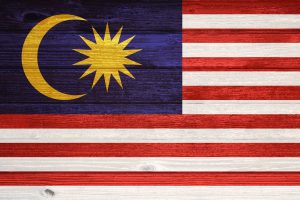Court bailiffs in Luxembourg this week issued fresh seizure orders for two units of the Malaysian state oil firm Petronas – the latest twist in a complex legal case that descendants of a defunct sultanate have mounted against Malaysia over a colonial-era land agreement.
The news was broken by Reuters, which cited the heirs’ lawyer and court documents. It also confirmed with Petronas the new seizure order for the company’s Luxembourg-based Petronas Azerbaijan and Petronas South Caucasus units.
In February of last year, a French arbitration court ordered Malaysia to pay $14.9 billion to the legal descendants of Jamalul Kiram II, the last Sultan of Sulu. The agreement is related to a deal that the Sultan of Sulu signed in 1878 with a British trading company over the use of his territory, in what is now the Malaysian state of Sabah on the island of Borneo.
After independence, Malaysia honored the agreement, paying the sultan’s descendants a token annual sum of a few thousand dollars. But it cut off the payments after more than 200 armed militants led by another self-claimed descendant of Jamalul Kiram II invaded the Lahad Datu district, in Sabah, from the southern Philippines.
Kuala Lumpur which unsurprisingly rejects the claim outright as a bogus and opportunistic cash-grab has refused to take part in the arbitration, and has vowed to fight the enforcement of the award. Petronas has taken a similar position. When contacted by Reuters this week, the giant state firm reiterated its previous position that the heirs’ actions were baseless and the company will continue to defend its legal position. The multi-billion-dollar award is also seemingly disproportionate given the relatively paltry annual payments that Malaysia was making prior to 2013.
In June of last year, Malaysia’s government obtained a stay order against the enforcement of the French court ruling, on the grounds that it might infringe on the country’s sovereignty. But the heirs’ lawyers argue despite the stay order, the French ruling remains legally enforceable outside France – and the legal team has attempted up their efforts to seize Malaysian government assets around the world.
The following month, lawyers representing the heirs made an initial attempt to seize the two Petronas subsidiaries. Last month, Malaysia’s Law Minister Azalina Othman Said announced that the order had been set aside by a Luxembourg district court, describing it as a “significant victory” for Malaysia.
The latest development suggests that the lawyers representing the Sulu heirs will continue to press their claim until they exhaust all possible legal avenues. Reuters quoted Paul Cohen, one of the legal team, as saying that first seizure order had been lifted merely due to a technicality, and that the team would continue to press the heirs’ claims.
As I’ve written before, the case is a striking instance of the impact that colonialism still has in modern Southeast Asia, and a reminder of the relative youth of the region’s nation-states, the permanence of which can easily be taken for granted. It is also a case study in the use, and potential misuse, of colonial legacies.
The lawyers for the Sulu sultan’s heirs have leaned heavily on anti-colonial justifications for the case, framing it as an instance of “justice” for those “dispossessed” by Western imperialism, and seeking to play into the growing European awareness and guilt about the continent’s vicious colonial legacy.
Yet from the Malaysian perspective, it is not hard to see how things might look exactly the opposite: how the use of European courts to breach the sovereignty of a former British colony, and appropriate billions of dollars of its wealth, represents not a break from this pattern of domination but its continuation.

































